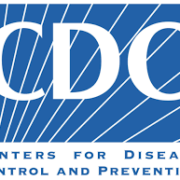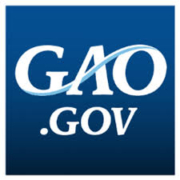The following is the latest COVID-19 information from the federal government as of 2:45 p.m. on Wednesday, December 2.
Centers for Medicare & Medicaid Services
CMS has announced the introduction of two new Medicare condition codes that will take effect for claims received on or after February 1, 2021: one to enable providers to report when a service is provided as part of Expanded Access approval and another to enable providers to report when the service is provided as part of an Emergency Use Authorization. Find an article about the new codes here in MLN Matters, CMS’s online publication.
- CMS has updated its compendium of COVID-19 emergency declaration of blanket waivers for health care providers with new information about its Medicare ground ambulance data collection system; see page 31 for details.
- CMS has updated its COVID-19 FAQs on Medicare fee-for-service billing with a new section for Indian Health Services hospitals (see pages 150-151).
Department of Health and Human Services
- HHS’s Office of the Assistant Secretary for Preparedness and Response has compiled a new hospital operations toolkit for COVID-19. It covers capacity, patient care policies and processes, infection prevention and control, and administration.
- HHS’s Office of the Assistant Secretary for Preparedness and Response will host a webinar titled “Crisis Standard of Care and COVID-19: What’s Working and What Isn’t” on Thursday, December 3 at noon (eastern). Speakers will discuss clinical consultation versus triage support, systems-level information sharing, coalition-level coordination activities, and recent publications/resources to help with COVID-19 planning efforts. Go here to learn more about the webinar and how to register for it.
Food and Drug Administration
- The FDA has reissued its August 23, 2020 emergency use authorization (EUA) for the emergency use of COVID-19 convalescent plasma for the treatment of hospitalized patients with COVID-19.
Centers for Disease Control and Prevention
The CDC has updated its guidance on appropriate periods of time to quarantine for people who believe they have been exposed to individuals with suspected or confirmed COVID-19. The new guidance calls for briefer quarantine periods.
- The CDC’s Advisory Committee on Immunization Practices (ACIP) has adopted the following resolution (scroll down to find it) about the administration of COVID-19 vaccines:
When a COVID-19 vaccine is authorized by FDA and recommended by ACIP, vaccination in the initial phase of the COVID-19 vaccination program (Phase 1a) should be offered to both 1) health care personnel and 2) residents of long-term care facilities.
- The CDC has updated its information on managing pregnant patients with confirmed or suspected COVID-19.
- The CDC has updated its guidance on assessing COVID-19 risk factors and why risk factors matter.
- The CDC has updated its data on COVID-19-related cases, hospitalizations, and deaths by race and ethnicity.
- The CDC has updated its guidance for expanded testing to help reduce the spread of COVID-19.
- The CDC has updated its information with guidance and resources for laboratories that perform COVID-19 tests.
- The CDC has published a new edition of its COVID-19 Science Update.
National Institutes of Health
- The NIH has updated its guidelines on the testing, treatment, and management of COVID-19 patients.
Government Accountability Office
The GAO has examined the federal response to the COVID-19 public health emergency, describing the impact of the pandemic and the government’s response to it while identifying shortcomings in that response and recommending ways to address those shortcomings. Learn more from the GAO report “COVID-19: Urgent Actions Needed to Better Ensure an Effective Federal Response.”

 CMS has announced the introduction of two new Medicare condition codes that will take effect for claims received on or after February 1, 2021: one to enable providers to report when a service is provided as part of Expanded Access approval and another to enable providers to report when the service is provided as part of an Emergency Use Authorization. Find an article about the new codes
CMS has announced the introduction of two new Medicare condition codes that will take effect for claims received on or after February 1, 2021: one to enable providers to report when a service is provided as part of Expanded Access approval and another to enable providers to report when the service is provided as part of an Emergency Use Authorization. Find an article about the new codes  The CDC has updated its
The CDC has updated its  The GAO has examined the federal response to the COVID-19 public health emergency, describing the impact of the pandemic and the government’s response to it while identifying shortcomings in that response and recommending ways to address those shortcomings. Learn more from the GAO report “
The GAO has examined the federal response to the COVID-19 public health emergency, describing the impact of the pandemic and the government’s response to it while identifying shortcomings in that response and recommending ways to address those shortcomings. Learn more from the GAO report “